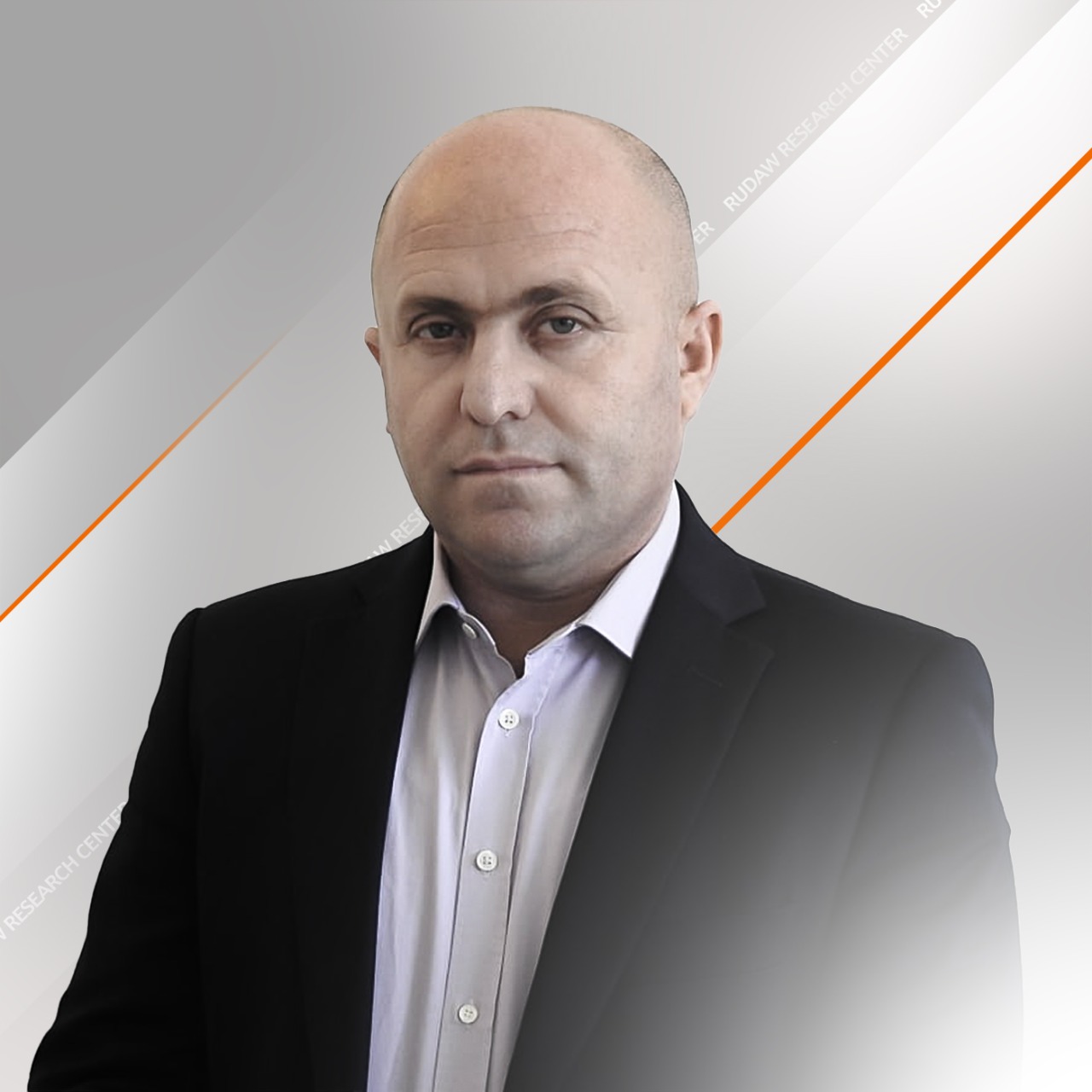The possibility of an Israeli attack on at least six Iraqi armed groups has become a prominent topic following a letter from Israeli Foreign Minister to the UN Security Council President, Barbara Woodward. The pressing question now is whether Israel will proceed with an attack. Israel has asserted its right to retaliate due to the escalation and increased frequency of attacks by Islamic Resistance groups in Iraq. This comes at a time when war is the last thing the Iraqi Prime Minister wants. With less than a year to the next elections, he is focused on advancing significant economic and political projects, all while aiming to secure his position in office. In 2024, despite various challenges and external influences, he managed to declare an informal ceasefire between the United States and Iraqi armed groups and found a moderate resolution to the contentious issue of U.S. troop presence. Regarding the tensions between Israel and Islamic Resistance groups, the Prime Minister has, at the very least, managed to publicly distance the groups involved in his government from these conflicts. This raises another crucial question: why has Israel chosen this particular moment to bring its complaint to the international stage?
srael's Accusations and Iraq's Reactions: A Battle of Justifications
Israel's primary justification for its complaint lies in the claim that six armed groups—Kataib Hezbollah, Kataib Sayyid al-Shuhada, Harakat Hezbollah al-Nujaba, Asaib Ahl al-Haq, Ansarullah al-Awfiya, and Badr—have escalated and intensified their attacks since September of this year. Israel argues that it has the right to defend itself under Article 51 of the UN Charter. However, despite these claims, evidence suggests that only three of these groups have explicitly mentioned attacking Israel, while the others have refrained. This restraint aligns with their understanding that further instability in Iraq is not in the government's interest, as these groups form a critical part of the administration's support base. According to various sources, between November 20, 2023, and November 20, 2024, the Iraqi Islamic Resistance claimed responsibility for a total of 312 attacks on Israel, with at least 89 of these attacks confirmed. Statistics also indicate a noticeable surge in the frequency of attacks, particularly in October, where the number of incidents tripled compared to previous months. It is important to note, however, that not all of these attacks originated from Iraqi territory. This nuance underscores the complexity of the situation and highlights the challenges in pinpointing accountability, which could influence Iraq's response to Israel's complaint.
Israel has stated that it was specifically targeted by Shahid and Sayyad 101 drones, as well as Raad 351 cruise missiles. The Sayyad 101 drone has a range of 100 km, while the Raad 351 missile can travel up to 350 km, and the Shahid 101 drone has a much greater range of 700 km. Given the distance of approximately 300-350 km between the two countries at their closest point, and considering the range capabilities of these weapons, it is reasonable to suspect that most of these attacks were launched from areas near the border or within Syrian territory. In his letter to the UN Security Council, the Israeli foreign minister cited Article 17 of UN Security Council Resolution 1546 (2004), which is significant in the context of Iraq's post-2003 statehood. This resolution explicitly requires Iraq to prevent armed groups from crossing its borders. This may explain the Iraqi government's recent heightened focus on securing its borders. On November 15, the Iraqi Defense Minister visited the Western Nineveh Operations Command, while the day before, he inspected the Syrian border. Additionally, on November 21, the Prime Minister himself visited the Border Guard Forces Command, where he addressed the potential dangers of the regional war and its implications for Iraq. These efforts underline the government's commitment to upholding border security and mitigating the risks of regional escalation.
The Iraqi-Syrian border holds significant geopolitical importance for various regional and international actors. For Iran and the resistance front groups, it serves as a critical land corridor providing access to Lebanon, Israel, and the Mediterranean Sea through three key gates: Sinjar-Rabia, Qaim, and al-Waleed. The Sinjar-Rabia crossing remains closed due to the presence of U.S. forces and the Syrian Democratic Forces (SDF). However, according to unofficial sources, Syrian Kurdish factions have previously rejected proposals, supported by the U.S. and Syrian opposition, to completely secure the Iraqi-Syrian border. This rejection was aimed at avoiding direct confrontation with Iran and the Islamic Resistance Forces. At Qaim and al-Waleed, the presence of Jordanian forces and Syrian opposition groups has made the movement of fighters and weapons possible, but not without significant risk. The return of Donald Trump to office raises questions about the future of U.S. troops in Syria. A U.S. withdrawal could increase the likelihood of Syrian Kurdish factions reaching an agreement with the Assad regime. Such an agreement could open the northern segment of the land corridor, which is strategically vital for Iran and its allied resistance groups. This concern is believed to have influenced the resistance to the implementation of the 2020 Baghdad-Erbil agreement. For the United States and Israel, these border regions are pivotal in curbing Iran's regional influence and preventing its hegemony. Following recent conflicts that have constrained the military capabilities of Hamas and Hezbollah, Islamic Resistance groups possess significant dormant security concerns for Israel. These groups possess advanced missile and drone capabilities and the potential to exploit the land corridor for strategic access to Israel via Jordan and Syria. As a result, controlling this border is crucial for U.S. and Israeli efforts to counterbalance Iran's regional ambitions.
What is Iraq Doing?
Iraqi Prime Minister Mohammed Shia al-Sudani has consistently asserted that Israel’s letter to the UN is merely a pretext for an attack on Iraq. In response, he promptly convened an extraordinary meeting of the Ministry Security Council. Iraqi Foreign Minister Fuad Hussein emphasized that Israel’s actions constitute a clear threat to the Iraqi government, and the Prime Minister is taking practical measures to prevent Iraq from being drawn into the ongoing conflict. But what exactly are these measures?
First, the Prime Minister has implemented military strategies, including holding regional commanders accountable for any security breaches and intensifying efforts to secure the borders. These actions indicate a stronger government intent to regulate the movement of armed groups. Additionally, he stressed the need to protect Iraqi airspace. Despite these measures, the government faces significant challenges in exerting full control over these groups, even with support from Ayatollah al-Sistani and traditional Shiite and Kurdish leaders, all of whom are aligned in their desire to keep Iraq out of the conflict. It is likely that, in parallel, the Prime Minister will engage in diplomatic efforts to convince these groups to refrain from escalating hostilities, similar to his successful mediation between the United States and Islamic Resistance groups in the past. However, on November 19 of this month, the Awliya al-Dam group released a photo showing a drone placed on a small boat at an undisclosed location. This appears to be a message that, even if they avoid using land routes or the Iraqi-Syrian border to challenge the government, they retain the capacity to strike Israel via the sea. This development suggests that continued attacks remain a possibility. Even if these groups wish to de-escalate tensions, they may do so in a manner that does not appear to their supporters as yielding to Israeli threats. Balancing these dynamics will be a critical challenge for Iraq in the coming weeks.
Second, Iraq's military air defense capabilities are limited, making it challenging to counter airstrikes effectively. The country's arsenal relies on an outdated Russian system, along with French radar and South Korea's Cheongung-II missile defense system, none of which provide comprehensive protection. However, any potential Israeli attack on Iraq is unlikely to be extensive. Iraq does not share a land border with Israel, and conducting continuous airstrikes via other countries' airspace would be logistically complex. Additionally, opening a new front of war would be politically and militarily detrimental to Israel. Based on past examples in Iran, Iraq, Syria, and Lebanon, it is plausible that Israel might adopt a strategy of targeting individuals rather than launching widespread attacks.
Third, Iraq has launched an intensive diplomatic and media campaign to prevent the conflict from escalating into its territory. However, the Arab League's capacity to intervene is limited, as demonstrated by its inability to effectively address the crises in Gaza and Lebanon. The United States is the only actor that has the potential to play a decisive role, but with Donald Trump’s return to power, any intervention is likely to come with stringent conditions aligned with his administration's priorities. Ultimately, these efforts will not succeed without strong internal unity in Iraq. To this end, Shiite parties will likely work to minimize their differences with the Kurdistan Region in the near future, aiming to consolidate a unified stance against external threats. This internal cohesion will be critical in mitigating the risk of Iraq becoming embroiled in the broader regional conflict.
Finally, the likelihood of war in Iraq remains high if regional tensions persist. Iraq is deeply interconnected with developments in Eastern Europe, Gaza, Lebanon, and the ongoing rivalry between Iran and Israel. Given the current regional dynamics—including the escalation of Tehran's nuclear program, ongoing tensions with Israel, and Iraq's internal challenges—Baghdad may be able to implement measures to delay the outbreak of conflict temporarily. However, sustaining peace indefinitely under such circumstances is unlikely, and if tensions in the region continue to escalate, the conflict may eventually reach Iraq. The underlying issue is that the Iraqi government is not the sole authority in decisions regarding war and peace. This disclosed secret underscores the complexities of Iraq's political and security landscape, where multiple actors wield influence, further complicating efforts to prevent the country from being drawn into the broader regional conflict.






